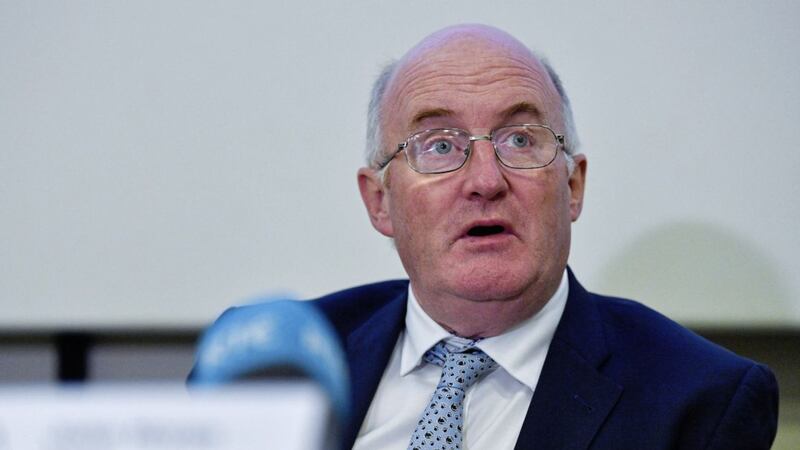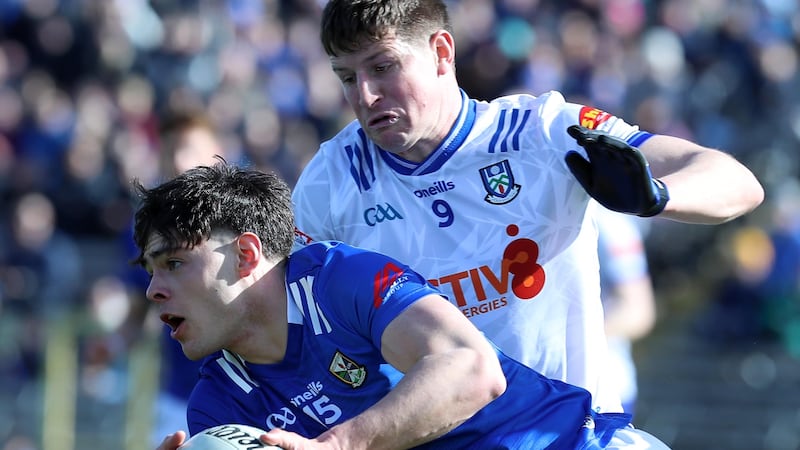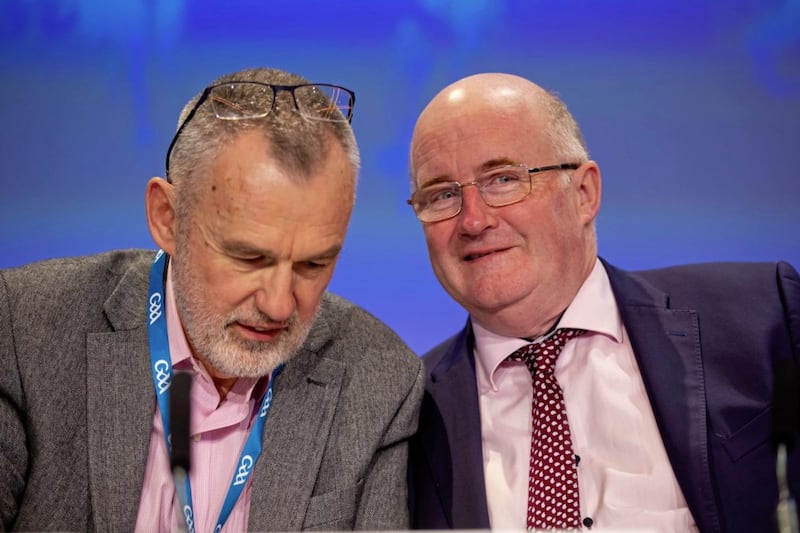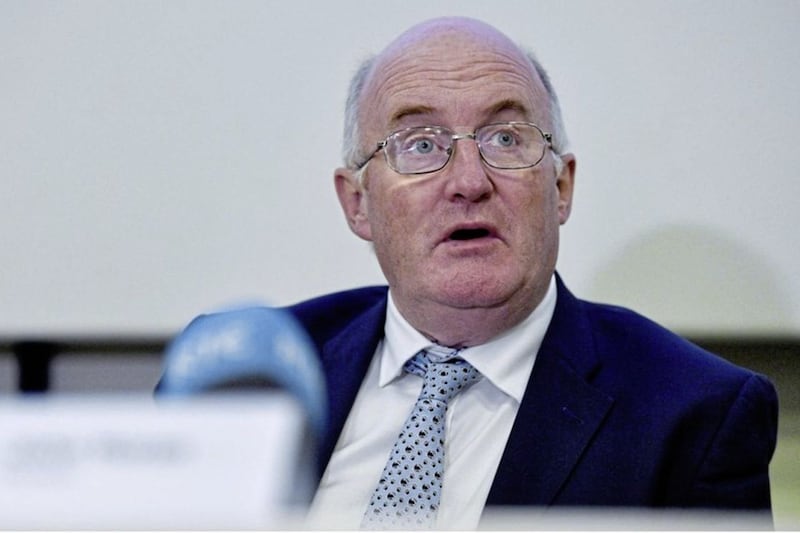THE ever-increasing cost of funding county teams is now threatening the club game, warned GAA President John Horan.
Speaking at annual Congress, Dubliner Horan referred to the “unsustainable” E30million now being forked out on preparing senior men’s teams and said that the spending was driven in part by a “cohort” of backroom personnel, many of whom were “not aligned to the amateur ethos” of the Association.
“Too many counties have been pushed to the pin of their collar to finance and fund an inter-county operation that is coming at the expense of other equally important projects in games promotion and development in their county,” said Horan.
“There is an industry now built up around county back room teams with experts and gurus and analysts almost numbering to as many people as there are players. Few of this cohort are aligned to the amateur ethos.
“The result is that our counties combined are spending 10 times as much on preparing teams than the figure which the GAA nationally is able to commit to investing in club pitches and facilities.
“Far from there being an emphasis on value for money, too much of this spending is of the ‘keeping up with the Jones’s mentality’ where counties are spending because they feel the need to keep up with the latest trend, or mimic what their neighbour is doing.”
Horan said that a shortened inter-county season would not seriously curtail these costs and agreed that shared services between county squads could help although that pooling resources was “in its infancy”.
“It is hard to put a limit on a county’s ambition and it is important that we do not drive the funding of teams underground and create a covert practice,” he said.
“But we shouldn’t need rules to enforce common sense. Above all, what’s needed is a culture and a mindset change because we have already seen how this practice has started to carry over into the club game and if these costs are unwarranted and unsustainable for a county team they are a dangerous threat to the club game.”
Horan has commissioned an internal report on the subject and expect its findings to be presented to the GAA this summer.
Meanwhile, county teams spending is on the rise but Horan warned that he expects the GAA’s financial return to fall by E6million this year.
“In the last few years we have increased the dividend returned to the GAA from Croke Park Stadium and it is important to highlight the role played by our supporters and the impact of the games we stage in that increase,” he said.
“A large proportion of this dividend comes from the sale of premium seats for our matches.
“We promised to use any additional income for clubs, county boards and World GAA. I am delighted to be in a position to be able to say that we achieved all of our targets in this regard.
“Some commentary likened the financial report as having the GAA laughing all the way to the bank. Nothing could be further from the truth of course.
The GAA has never existed to create a mountain of reserves. The wealth of the GAA needs to be something that can be seen in our numbers at work on the ground.”
Horan highlighted the 365 coaches the GAA now employs to work at games promotion and development and financial support given to over 500 clubs towards their redevelopment of pitches and facilities.
Alongside those two funding strands, more than 6,000 club players required a share of the €8m given in financial assistance in their recovery from injury.
“It’s worth pointing out again that of the 360 games we organise centrally every year, less than 60 generate a surplus,” Horan added.
“In a nutshell, that means that these games provide the finance to run the Association.
“That is not to question the validity of staging the remaining games – we stage them and run the competitions they form part of because the player that plays in our smallest competition is as valuable to our organisation as the player that adorns Croke Park on All-Ireland final day.
“As a not-for-profit organisation, our goal is to reinvest and reinvest significantly in the development and promotion of Gaelic games and to provide assistance to our clubs and counties to be able to perform.
“A word of caution is needed, however. We are unlikely to hit the same level of €74m in revenue in 2020 which we achieved last year, and people need to be aware of this and budget accordingly.
There are no concerts planned for Croke Park this year and we cannot bank on an All-Ireland final replay either. This will bring our figures down by about €6m.”








